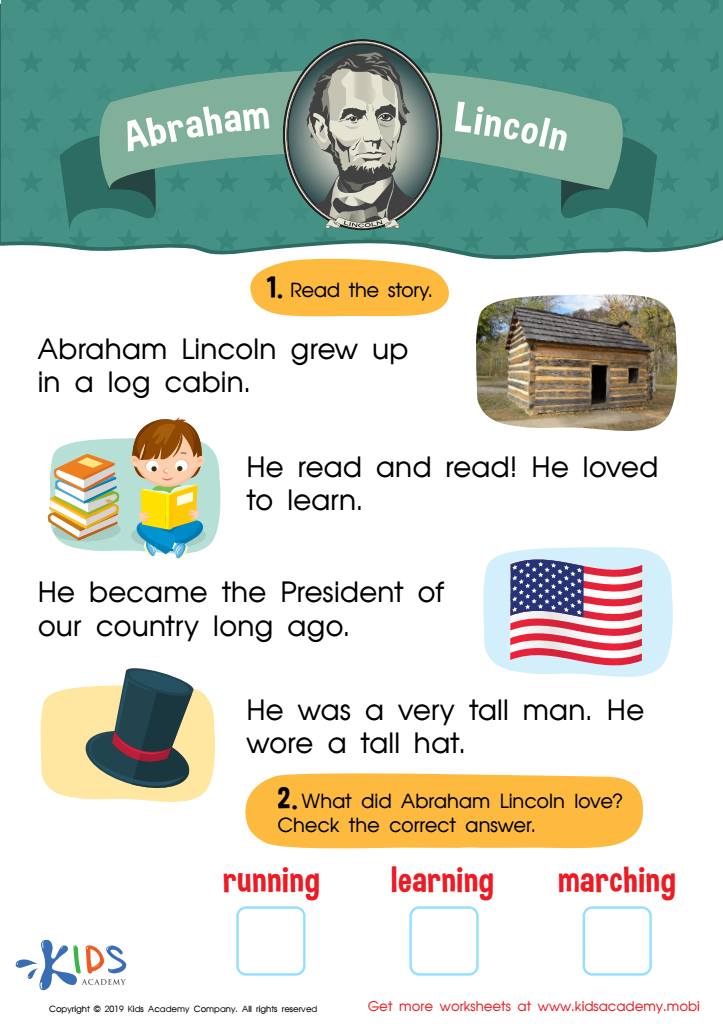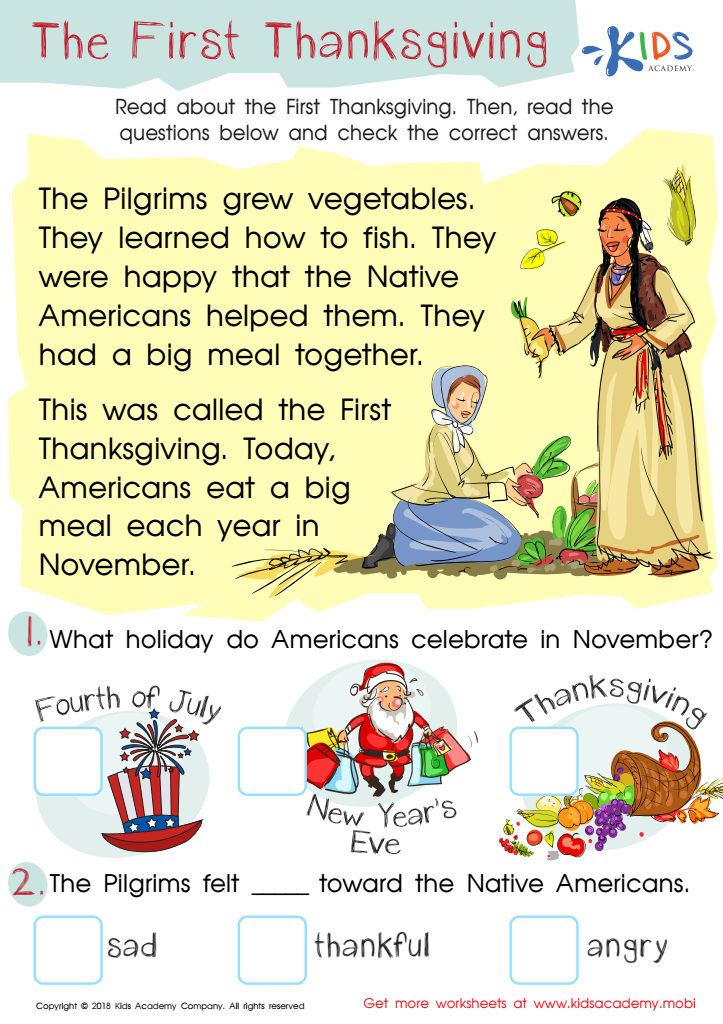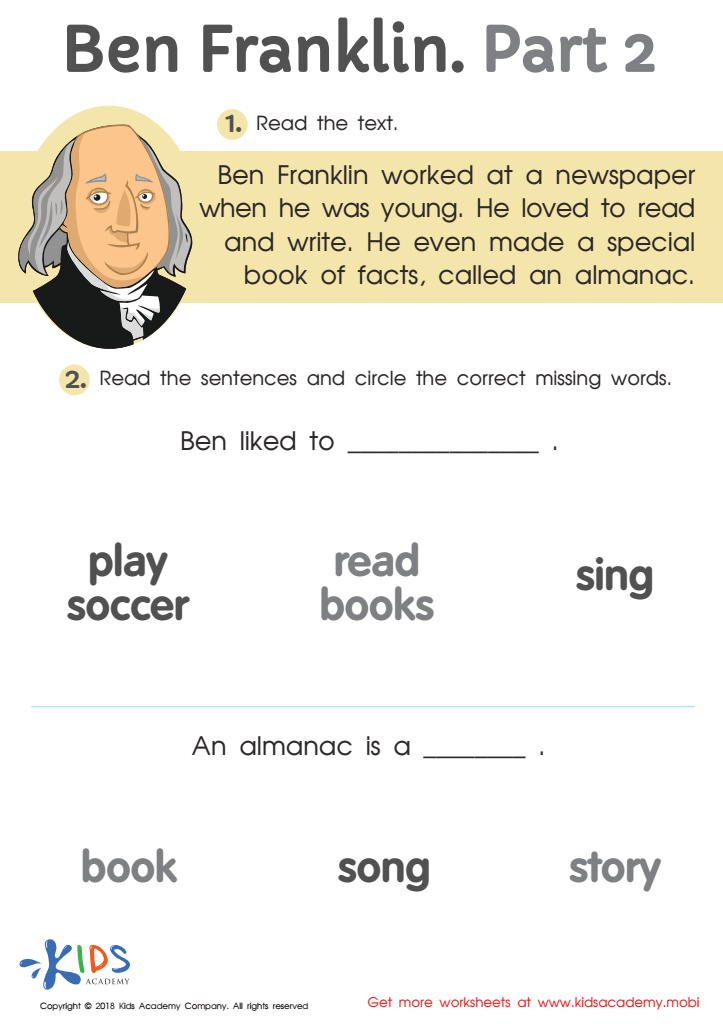Historical Knowledge Reading Comprehension Worksheets for Ages 5-8
5 filtered results
-
From - To
Discover our engaging Historical Knowledge Reading Comprehension Worksheets for ages 5-8! These educational resources are tailored to build essential reading skills while captivating young learners with fascinating historical facts. Each worksheet combines age-appropriate texts with stimulating questions designed to enhance comprehension and critical thinking. Perfect for homeschooling or classroom use, our worksheets make learning history fun and accessible, helping children to connect past events with the present. Provide your young readers with a unique opportunity to explore the wonders of history while developing their reading and cognitive abilities. Visit us today and start your historical adventure!


White House Worksheet


Benjamin Franklin Worksheet


Abraham Lincoln Worksheet


Assessment: First Thanksgiving Worksheet


Ben Franklin Part 2 Worksheet
Parents and teachers should prioritize historical knowledge reading comprehension for children ages 5-8 because it lays a critical foundation for well-rounded development. First, learning about history helps young children develop a sense of identity and belonging by understanding their cultural heritage and the diverse backgrounds of their peers. This early exposure fosters empathy and respect for different cultures and viewpoints, integral traits for a harmonious society.
Second, historical knowledge enhances cognitive skills like critical thinking, analysis, and memory. By engaging with historical narratives, children improve their ability to draw connections, understand cause-and-effect relationships, and evaluate multiple perspectives. These skills are not only valuable in academic contexts but are essential for problem-solving and informed decision-making in everyday life.
Moreover, historical reading comprehension helps improve literacy. History texts often introduce children to new vocabulary, complex sentence structures, and varied genres, thereby enhancing their language skills. The narratives involved captivate young imaginations, making reading an enjoyable and engaging activity that can build a lifelong love for learning.
Finally, an early grasp of history instills civic consciousness. Understanding past events, triumphs, and mistakes empowers children to contribute thoughtfully to their communities and society at large. In essence, incorporating historical knowledge during these formative years creates well-informed, empathetic, and intellectually capable individuals prepared for future challenges.

 Assign to My Students
Assign to My Students
















